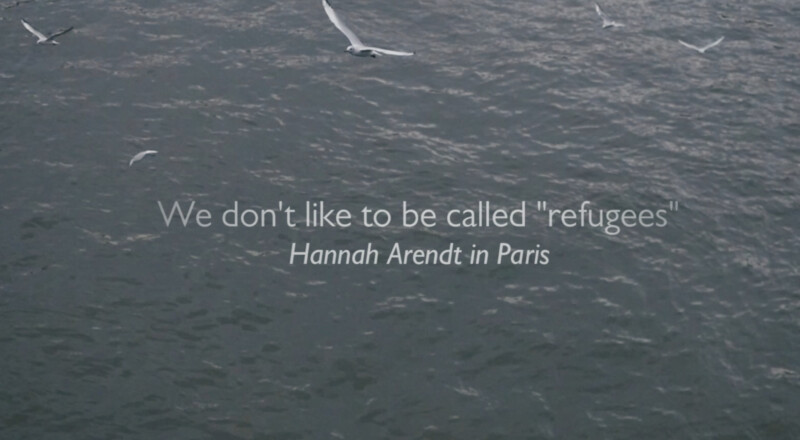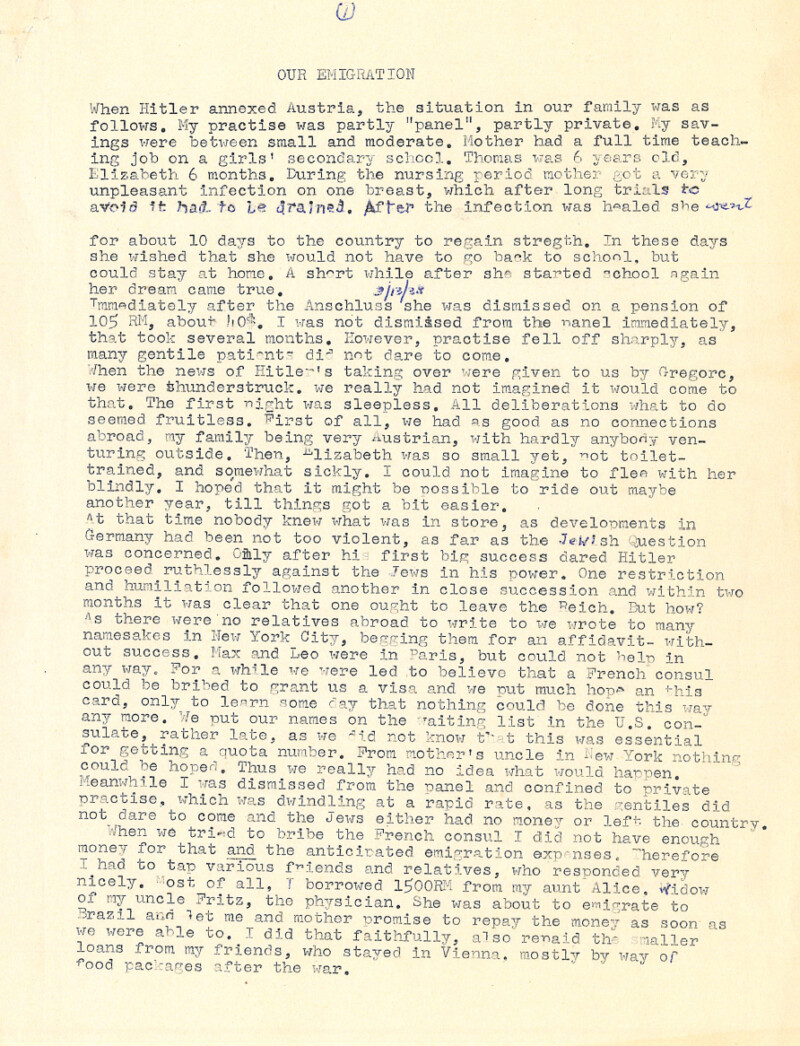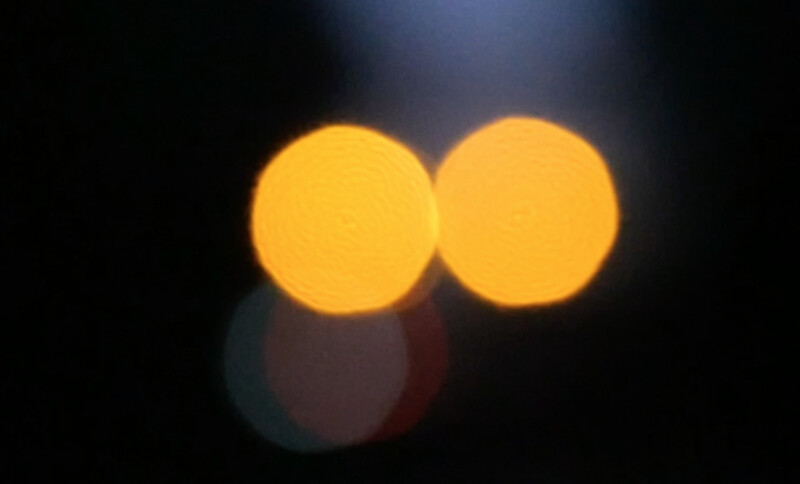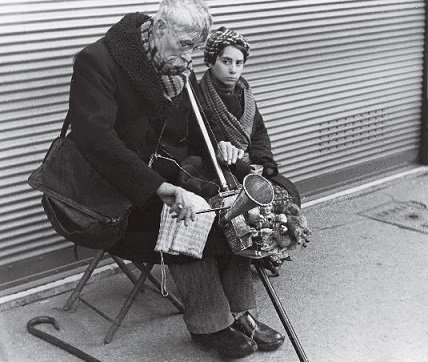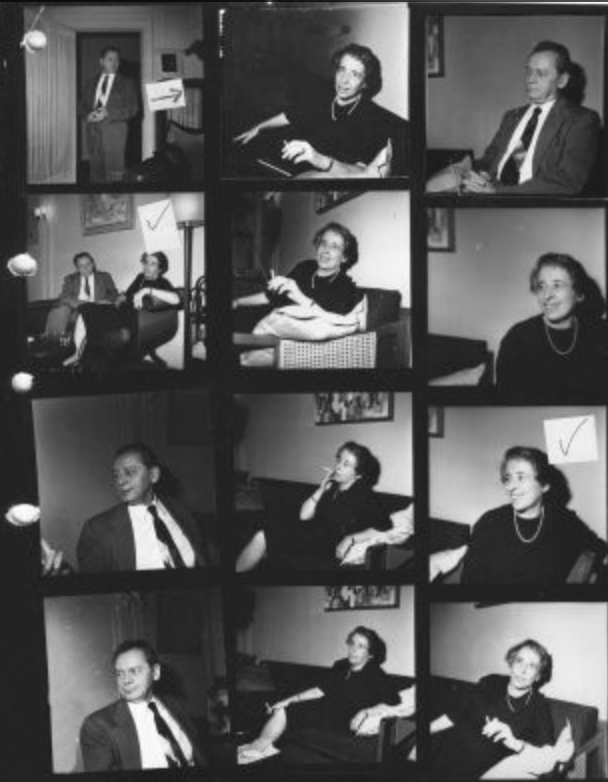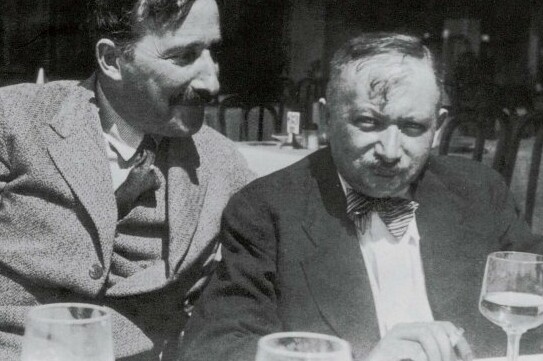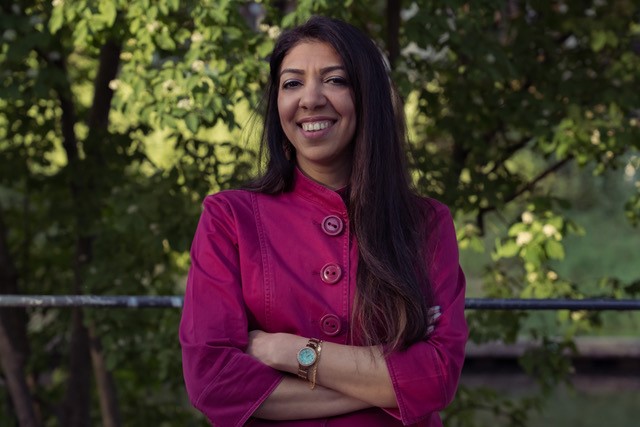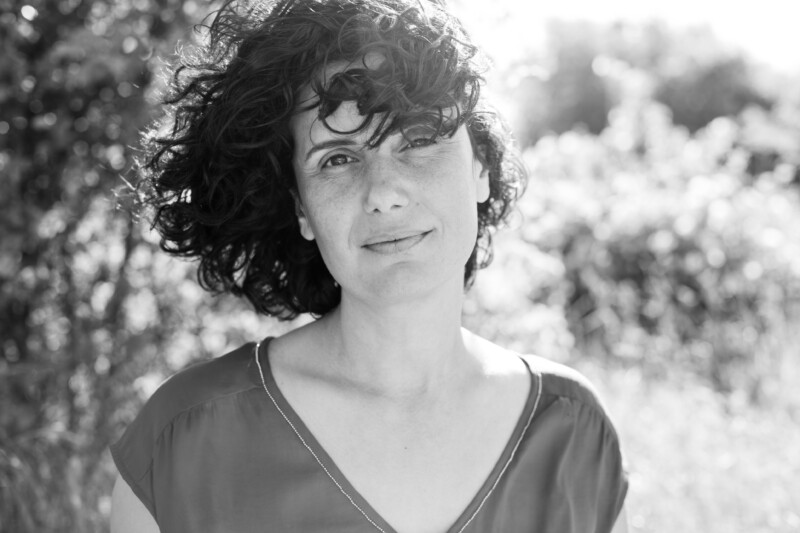[6]
[…]
Already after the first unpacking and preliminary installation we gathered from the way our relatives talked that Bondy’s opinion about the French police had been erroneous. We learned, little by little, that it would not be easy at all to stay beyond the two weeks of our visa. Also that none of them had any money to help us, but that the Aid Committees helped for a while. In one word, it dawned on us that we were in for a difficult time and would need all our wits and luck.
Lisa’s condition was not wonderful, she was coughing and had fever. One night I thought of taking advantage of that. Max had a friend, whose family doctor was taken into confidence. He came to see Lisa and advised us. Upon my suggestion, he signed a certificate that she had pneumonia and was not capable to take the boat trip to Bolivia. The next boat went three months later.
Armed with that certificate, mother, whose luck I trusted in such dubious procedures, went to the police and explained the case. She got permission to stay three months. When she brought it back, nobody could believe it. Such luck was incredible, unheard of. Evidently, it was a mistake, but in our favor.
When my sister in London heard of our arrival, she sent 20 pounds for the first need. Also, I went to the Committee for Austrian refugees, there I was taken care of very friendly and given the usual amount of relief money.
We were hardly in Paris when we read what had happened to the Jews in Germany in Nov. 10. A big, organized pogrom had taken place and the real, full terror had begun. To have avoided that was worth a lot. Otherwise it might have been less complicated to wait for the US visa in Vienna. But who knows what would have happened to me? And finally, this way we saw something in Paris.
In the beginning, we ate again in shifts in restaurants. But this was expensive and complicated. So we found the solution to buy a small alcohol burner, on which we cooked in our rooms. This was not permitted, but the proprietor let it pass and said nothing. We had to shop every day; the cooking was often done by putting the burner in the basin, where we also did the dishes. Laundry, however, had to be given out, especially Lisa’s diapers.
[7]
It was necessary to keep the children quiet in order not to have trouble with the neighbors, but they were pretty good.
Regular work of any kind was illegal for refugees; one had to get relief money somehow. After a while the Austrian committee passed me on to a great, general committee (all American money), where I was told that as a doctor I should go to the Assistance Medicale, who were responsible for me. When I came there, the people were wonderful to me, so much so that I was quite overwhelmed and asked to do something for them. They sent me out to make house calls to sick refugee children and in turn helped me the whole time very generously. My house calls took me all over Paris and I came to know a lot of people.
Slowly the affidavit situation was taking shape. I received one from Mr. Hess. Both Halla and my sister had written to Scharff for me and finally Dr. Scharff secured another affidavit from one of her patients, Mrs. Godes. Finally, Mr. Boerner from the Ethical Society, Vienna, later New York, a close friend of my mother, procured another one from the wife of a New York dentist, herself a teacher, Mrs. Lillian Latter.
Meanwhile, Thomas had to go to school and as the public schools were not so good we enrolled him into a private one, Ecole Alsacienne, not far from us. How we got the nerve and the money I don’t remember any more.
While these things were going on, I remembered the one person I might find in Paris I knew from before. In the late twenties, my mother had a boarder, a French student, who later went back to Paris. In my mother’s address book I found his address and went now to see him. I was met by his brother and mother, Mme. Plé, who told me that her son had become a Dominican monk and was living in a Belgian convent. But she would write to him about me, as he had often talked about my mother.
Soon afterward I got a most charming letter from him, not only expressing his deep sympathy, but containing a long list of recommendations. Furthermore, he must have given a hint to his parents, for they invited us once a month for lunch, which gave us the rare opportunity to see a French family from the inside. Lisa had to stay home and Fillipa baby-sat with her.
Plé senior had a big hardware store and was a typical French bourgeois. His wife was very nice to us and asked mother to give lessons, I think in Latin, to her grandson. The monk’s brother had a small pharmaceutical firm. He had a lot of children, who caused much concern, as not all of them were gifted. The connection with the pharmacist proved very valuable later on.
With my list of addresses from frère Albert, as Robert Plé was now called, I went all over Paris, talking to a lot of people and found a few of them helpful. I got some German lessons, connections with a doctor and with a psychologist, who employed me for abstracts of German scientific articles.
Through this man I came gradually in contact with a group of interesting young people. They were devout catholics, but of a shade entirely new to me. In Austria, catholicism was, by and large, illiberal and even reactionary, at least before Hitler. In France, I found a different situation. There were various shades of catholics here, from people like the Austrian ones to groups that were considered “red.” The group of my psychologist centered around
[8]
Édouard Mounier, who edited a review “Ésprit” and had founded a movement which he called personnalisme. His followers were mostly young people of the educated class, most liberal and progressive, but devout catholics. They were very open-minded and definitely represented some of the finest people in France. I attended one of their conventions and found them very congenial and their ideas kindred to mine.
One of the strangest upshots of Plé’s recommendations was the following. He advised me to write to a catholic newspaper “Temps présents”, describing our situation and asking for work. The paper brought a short advertisement, through which I got in touch with the psychologist. But it had another consequence as well.
One day, we got a letter from the wife of a surgeon, Dr. Escoubès in Évian. That she had read the advertisement and would like to help us. Apparently my being a colleague of her husband was the cause of her interest. Would we let her know what we needed most. Out of this a correspondence developed which gave mother very much joy. She kept sending packages with wonderful gifts, which helped very much.
Meanwhile, Thomas went to school. Classes were small and the children got enough attention. In the beginning, he didn’t understand a word, but had to behave as if he understood something. But he picked up French quickly and after three months was fairly proficient. It is remarkable how much is asked from French children. They had to start to write with ink right away, got homework from the first day, had to memorize poems which were not very short and had to learn geography far beyond their comprehension. There were no extra activities at all.
In addition, Thomas went to Eurythmy and Painting class and was doing quite well there. He looked very cute and red-cheeked, so that his classmates called him tomate crue. He and Lisa played, whenever possible, in the Jardin de Luxembourg, a 10-15 minute walk from our hotel. It is full of statues, has an octagonal pond to sail toy boats on and is very lovely. In the background is the Palais de Luxembourg, housing the Senate.
My house calls for the Assistance Medicale brought me all over the city and I learned to know Paris much better then I would have otherwise. Also the many people I had to see for different reasons brought me to places a tourist rarely sees. Slowly, life in Paris grew on me. On two previous occasions, both very short, I did not have much love for the city. This time, during the extended stay of over nine months, I slowly discovered the beauty of the Ville lumière with its peculiar light, which one does not notice before a certain time. There is something in the air, hard to define, which people love after a while, no matter how precarious their condition. For this appreciation of Paris I am very grateful. But, on the other hand, it made the farewell quite difficult.
The visa affairs were maturing slowly. After a while one could be pretty confident that one would get it. But the quota number had to be waited for.
After our three months were up, mother went again to the prefecture. This time they found out that a mistake had been made, but with much persuasion, we got another two months. After these we were
[9]
threatened to be “eloignées”, that is, we should leave Paris and live somewhere in the provinces. Plé’s brother procured for us a recommendation to the prefect of the police. He asked us why we had left Austria! But finally he granted permission to stay in Paris till the US visa was obtained. That was very important for us, because in another place it would have been very hard to push the visa in the necessary way and also to get money to live on.
For the same reasons we had to decline an offer of a free apartment about an hour from Paris.
Our crates had arrived from Vienna and were put into storage. After the visa was granted, we had to arrange for transportation. All that made it necessary to be in Paris, where everything was concentrated.
Mother had struck up an acquaintance with a secretary at the US consulate. She had asked an usher if there was anybody who wanted French or German lessons. He asked around and found a young lady who wanted exchange lessons. She came 1–2 x a week to our hotel. It so happened that she was from Elyria and told us all about Lorain, where we were to go. When the time came, she pushed the consul to give us the visa; but I don’t think it made much difference.
I had to try to earn money beyond our relief grant. It was done in different ways. Occasionally, I treated a refugee medically for a fee. My sister recommended me to a rich lady who asked me to bring some order into her big library and to catalogue it, later to translate something. For these jobs she paid me very handsomely.
I knew a protestant pastor of Jewish race, who had been in Silesia, then in Vienna, now in Paris (at present in New York). I sang in the choir in his church. Once he mediated a gift of English money for me (10 pounds). Then there was an organization “Self help,” which also gave me once a certain amount. I mentioned the jobs mediated through Plé.
I had an uncle in Geneva to whom I wrote if he could send me cancelled stamps from his big business concern. For Leo dealt in stamps and drew our attention to the money that lay in them. My uncle sent me a very big package and for days on end we detached them in hot water and sorted them out. It was not worth the trouble, as at least 98% were worthless. But it was nice of him.
Later on, he happened to come to Paris. At that time, the US consulate made every possible difficulty to the refugees, asking more and more guarantees that one would not become a public burden. So I asked my uncle for a loan (I forgot how much) in Swiss Franks to show the consul, with the understanding that I would send back the money the moment I arrived in US. He granted the loan without difficulty and all went as planned.
Some of our friends from Zagreb visited Paris and came to see us, leaving us some money.
On St. John’s Day 1939 I went on an expedition to find my traditional flower, which I thought I needed now more than ever. I went into a part of the environs where I had never been before. I searched a long, long time in vain. Finally, I found some on a railroad dam. This made me very gay; I enjoyed the peaceful scenery, the friendly people, all very congenial to me. The only painful thing was that we had to leave all that and go to a country where everything was unfamiliar to us.
When we finally got the visa we had to arrange for transportation for four people – no small matter. There was a committee for that too. It had a bad reputation and I went there with fear and trepidation.
[10]
But it was much better than I had expected, the waiting not overly long, the people friendly. There was a major hurtle. It was a decidedly Jewish organization. When the question of religion came up and was answered truthfully the interrogator hesitated – I knew that it was in the balance now. But he preferred to ignore it and we got the tickets.
The last week were rather pleasant, the major problems solved, for the moment at least. Paris was so beautiful. I had found friends and now I had to leave. My head told me how fortunate I was, but my heart rebelled.
I forgot to mention that in April Max and Fillipa had gotten married and left for New York, on an affidavit from his uncle in Brooklyn. Mrs. Plé, apparently inspired by her son, our guardian angel, invited us to stay one week with her in her country house in St. Fargeau near Paris. So we had a wonderful week there, rested up really well. Plés were extremely nice to us. Once I went with a relative to Mass in a small country church. A young priest played the harmonium and the congregation (and I) sang the mass. It was very satisfying.
Then came a big surprise. Dr. Halla appeared again. He had been in Paris, tried to see us, was told where we were and came out. He stayed 1-2 days at Plé’s. I went swimming in the Seine with him and had very interesting talks. Finally, we went back to Paris, after having said good-bye to the Plés.
During the last week my sister came from England to see me off. One evening, we were sitting in a cafe, which is very nicely located, across from an old church. I sighed that I would not see that again etc. She said quite impatiently: You are going to a country where you won’t see old buildings and places, but that what modern men have made. Better prepare your mind for it. I replied that I had not the slightest curiosity – that was my feeling at that time.
On Aug. 16 we drove to the depot. She left for Calais, we for Le Havre, where we embarked on the Isle de France. My sister gave me 100 pounds (= 350$) as a reserve fond, which two years later helped me over the most difficult times. The money was repaid after the war in food packages.
I forgot to mention that mother and I (separately, of course) made a pilgrimage to Chartres, as a last farewell to Europe.
When we arrived in New York on a host August day we were greeted by Max and Fillipa, Harry Bolk and Mr. and Mrs. Boerner. The latter had taken a room in a rooming house for us, bought some provision and proved extremely good and helpful. The turbulent city inspired mother and me after half an hour with the fervent wish to get out from here as fast as possible.
Max helped me with the necessary arrangements. We went to the Christian Aid Committee, where my worker was a Mrs. Grondstrand. She was extremely kind.
Meanwhile, the Scharffs wrote to us to come to Lorain and to live with them. Already in Paris I had learned about the 60 semester hours college Ohio required, was therefore quite doubtful what to do. A Physician’s Aid Committee told me they believed it could be arranged in an individual case. And that Ohio was much to be preferred over New York. So we decided to accept Scharff’s offer and I told Mrs. Grondstrand that we wanted to go to Lorain. She not only gave us the tickets but, as she was from Cleveland, wrote to her brother there, Mr. Edelson, he should meet us at the terminal and show us how to get to the Nickel Plate RR, which services Lorain,
[12]
which was notoriously difficult and unfair. I did this indeed on the side line, but with the idea to use it only in the worst case.
After long deliberations, we decided for Ohio. The tuition was loaned by Mr. Eugene Halle and the Hebrew Free Loan Assn. in equal parts.
I went through the 60 semester hours in less than one year and in June 1941 took the Ohio examination.
In October, I got my license and, again with the help from the committee, set up my first office. In the first few months the committee made up the difference between my earnings and expenses.
I can say that they proved to be kind and helpful beyond any expectations.
This is, in rough outline, the train of external events of our emigration and immigration.
